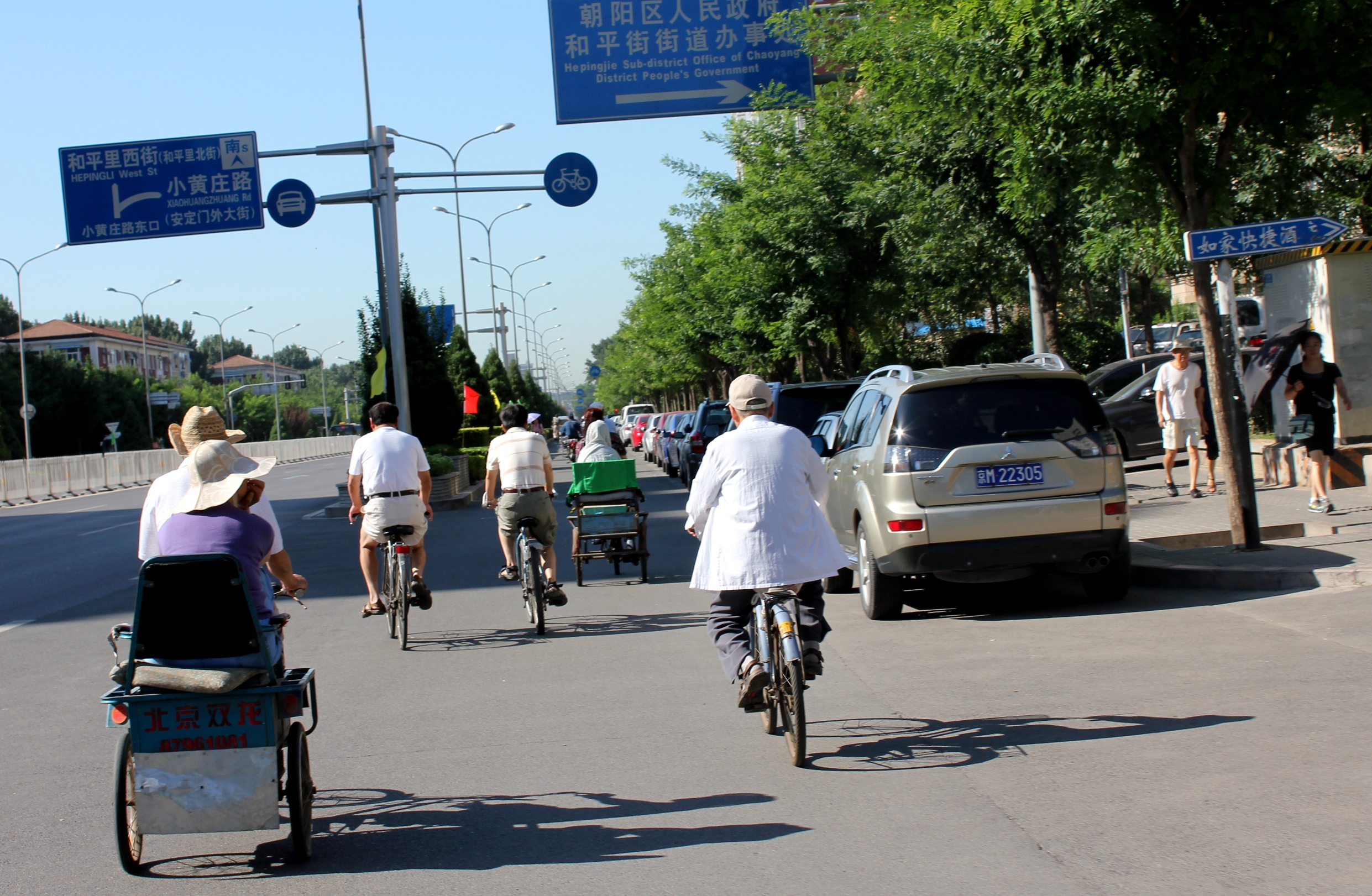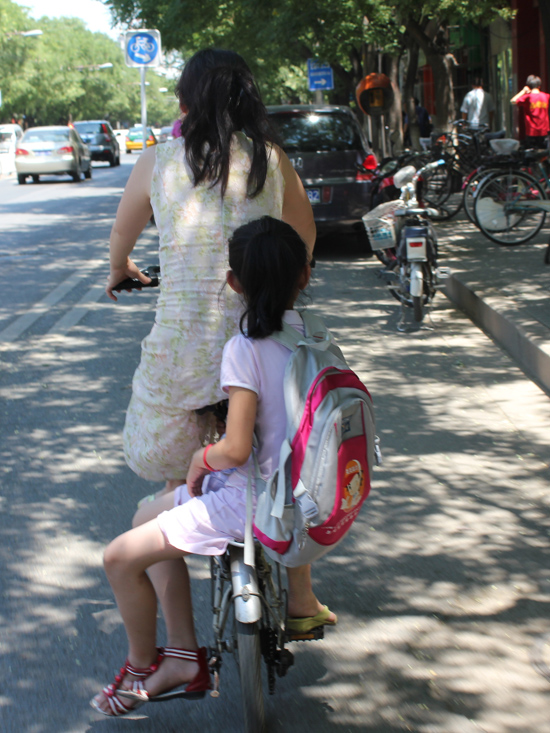
In the middle of summer in a city where I work up a sweat slurping noodles for lunch, you might think cycling would be as appealing as aerobics in a sauna.
But in this city of 20 million, where every day the equivalent of the population of New Zealand rides the subway, cycling is my favourite way to get around.
And, believe it or not, it is a surprisingly cool option. Beijing is Christchurch flat, so there is no pumping of the thighs to push my bike and me up a slope, and as I coast, I create my own breeze.
My husband, who knows these things, tells me my wheels are an old-school Holden Manaro of the bike world – heavy and solid, but once you get them rolling, they cruise along at a respectable speed.
Of course, Holden drivers might scoff at the basket hooked in front of my handle bars, but that is standard issue in this town. You need somewhere to carry your veggies, dumplings, or lap dog.
And cycling is no excuse for lycra, padded-bottomed pants or fluoro vests. I cycled to dinner at a swish restaurant on Saturday night in my going-out clothes – It’s the done thing.
Although, as a member of the fairer sex, I am usually underdressed, my cycling attire paling in comparison to some of the high-heel, dress-wearing local women I share the bike lanes with.
Short-legged shuffleAt least my feet can reach the ground. On one of my first Beijing cycling missions, I noticed my Chinese friend performed an awkward rapid dismount on the approach to an intersection. I assumed there was something wrong with her brakes but when I asked about it, she sheepishly told me it was because she is too short to balance the bike with her legs astride it, and she worries it will tip if she had to come to a sudden stop.
I often spot female riders doing the same Beijing-short-legged shuffle as they come to a stop.
You would think my biggest worry as a cyclist would be the mash of cars, lorries and buses on the streets, but more menacing are the silent electric bikes that whizz about the city. They catch me unawares.
Once “the kingdom of bikes”, China’s rapidly growing middle class are eagerly embracing car culture, but as the streets jam-up, battery-powered electric bikes provide a cheap, speedy alternative commute, with the added bonus of being environmentally friendly.
In a country we too often associate with belching smoke stacks and jean-blue rivers, battery-powered bikes and other environmentally-friendly vehicles are increasingly popular, largely thanks to government encouragement.
Of course, you have to have your wits about you, but I would argue cycling in Beijing is safer than taking to the streets in my hometown, Auckland. I am not saying Beijing drivers are more courteous or less aggressive than their Kiwi counterparts, it’s just they acknowledge pedal pushers have a place on the road.
They still pull out in front of me, or inch me to the edge of the road – they just make eye contact before they do so.
Once you get a feel for the lay of the land, the roads, with their designated bike lanes, are relatively easy. Negotiating my apartment block, not so much.
Top of the list
My friend who lent me my bike was adamant I shouldn’t leave it lined up alongside the dozen or so others always parked and chained outside my apartment complex. Although I feel safer in China than almost any other country I have travelled in, people are constantly warning of personal property theft, and bike theft, probably because of the share quantity of bikes in public, seems to top the list.
I can tell bikes are prized possessions - often new bikes still sport their factory-wrapped plastic long after they take to the road, in the same way my mum kept the stickers on the door of her first microwave oven for years.
Anyway, after every cycling outing, I safely stow my bike in the small kitchen of my apartment – with all the great food on offer in my neighbourhood, it doesn’t get used for much else!
What causes the stress, is lugging my rather sturdy bike up to my fourth-floor apartment. My block has two lifts, but generally, in what I assume is a bid to save power, only the smaller of the two is in operation. Frustratingly, my bike doesn’t easily fit into this only-slightly-bigger-than-a-cupboard space.
I have to twist and turn it, so it stands vertical, balanced on just one wheel at a very particular angle, in order for the elevator door to squeeze shut.
I have mastered the difficult manoeuvre and try to time it so I have the lift to myself, but more often than not, just as I have folded myself and the bike into the tiny space, someone pops around the corner to join me. Last week it was three senior citizens, one of whom was blind. Awkward.
A few times, I have not even needed to tell my fellow lift-riders what floor to let me out at. It seems word has got around the apartment block that the crazy “laowai” stays with her bright red bike on the fourth floor.
Beijing by bike – it’s exhilarating, it’s practical, it helps me burn off the unhealthy amount of dumplings I eat. Trust me, don’t leave this city without saddling up alongside the peddling masses.

China Through Cinema Reporter Kim Bowden reviews a series of films as she attends the "China Through Cinema" events. She provides a glimpse into life in Beijing, a rapidly evolving city with an incredible history. Today Wang Xiaoshuai's 2001 film Beijing Bicycle, which tells the story of a 17-year-old migrant worker who comes to the big smoke and gets a job with a bicycle courier company, gets her talking about her own experience cycling in China's capital.
China is a country on the move. According to US journalist Peter Hessler, in 1978, at the start of its reform and opening up, approximately 80 percent of the population lived in the countryside. By 2001 an estimated 90 million had already left home. Many, like the main character in Beijing Bicycle, were young and rural, chasing opportunity in China's booming cities.



